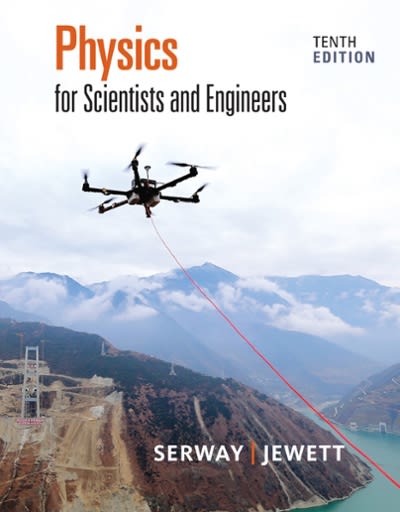Question
A linear regression model was used to examine the association between bone mineral density (kg/m 3 ) and magnesium (mmol/l) in well water. The linear
A linear regression model was used to examine the association between bone mineral density (kg/m3) and magnesium (mmol/l) in well water. The linear regression model also adjusted for age (years). The regression results are below. Which of the following are true? (Select all that apply.)
Select one or more:
a.
The total model with magnesium in the well water and age explains 92.612% of the variation in bone mineral density.
b.
After adjusting for age, each unit increase in magnesium in the well water is associated with an increase of 0.314 units of bone mineral density, and this association is statistically significant.
c.
The association between bone mineral density and magnesium in the well water is statistically significant at the 0.05 level.
d.
The association between age and bone mineral density is not statistically significant at the 0.05 level.
e.
Each additional year of age is associated with a decrease in bone mineral density of 0.259 kg/m3,after adjusting for magnesium in the well water.
Question 12
A multivariate regression model looking at the association of intraocular pressure (mm hg) with (1) having seasonal allergies, (2) wearing contact lenses, and (3) using eye drops found a coefficient of determination (r2) of 0.23. How would you interpret this statistic?
Select one:
a.
Those who wear contact lenses, have seasonal allergies, and use eye drops have a 37% chance of having high intraocular pressure.
b.
The intraocular eye pressure of those who have seasonal allergies is 0.23 mm hg higher compared to those without allergies, adjusting for use of contact lenses and eye drops.
c.
seasonal allergies, contact lens use, and eye drop use taken together explain 23% of the variation in intraocular eye pressure.
d.
The association between having seasonal allergies, use of contact lenses, and use of eye drops with intraocular pressure is not significant at the 0.05 level.
Question 13
A strong correlation (>0.85) between the independent variables that you want to include in one multivariate linear regression model is an indication that which assumption has been violated?
Select one:
a.
Homoscedasticity
b.
Residual analysis
c.
Normal distribution of the dependent variable
d.
Multicolinearity
Question 14
In a study looking at the association of mean hours worked per day (hours) and age (years) with body mass index (BMI), the researchers used multivariate linear regression. The regression equation is below. What BMI would you predict from this equation for someone age 25 years who works 45 hours per week?
Y = - 3.95 + 0.04(hours worked) + 1.21(age)
Select one:
a.
-2.7
b.
66.05
c.
32.05
d.
28.1
Question 15
Linear regression is appropriate for what type of dependent variable?
Select one:
a.
Polytomous
b.
Dichotomous
c.
Count
d.
Ratio scale and normally distributed
Question 16
One of the important benefits of multivariate regression over many other statistical tests is that it
Select one:
a.
ascertains temporal order that is necessary for causal inference.
b.
ensures that you are fulfilling all the required assumptions for statistical testing.
c.
allows you to prevent measurement error.
d.
allows you to adjust for potentially confounding variables.
Question 17
What do we mean by regression toward the mean?
Select one:
a.
The linear regression equation can be used to identify the average value of each variable in the model.
b.
The phenomenon that if a variable is extreme on its first measurement, it will tend to be closer to the average on a second measurement.
c.
Linear regression normalizes the scale of the variables so they have a mean of zero and standard deviation of 1.
d.
Outliers in the model should always be excluded when using linear regression.
Question 18
What is the difference between stepwise methods versus the standard approach and hierarchical methods of selecting independent variables to include in a linear regression model?
Select one:
a.
Stepwise is better for hypothesis testing than the other approaches because it is less influenced by chance.
b.
Stepwise methods allow you to include more variables without increasing the probability of making a type I error.
c.
Stepwise uses statistical criteria for selecting the variables to be included, whereas the other approaches use theoretical rational.
d.
Stepwise uses theoretical rational, whereas the other approaches use statistical criteria for selecting the variables for inclusion.
Question 19
The coefficient of correlation is
Select one:
a.
a measure of the strength and direction of the linear relationship between two variables.
b.
equal to the size of the change in the Y variable that is caused by a change in the X variable.
c.
is equal to the proportion of the variation in the Y variable that is due to variations in the X variable.
d.
All of the above are correct.
Question 20
What type of relationship between a dependent and independent variable is described by linear regression?
Select one:
a.
A threshold effect
b.
A parabolic relationship
c.
A linear relationship
d.
An exponential relationship
Step by Step Solution
There are 3 Steps involved in it
Step: 1

Get Instant Access to Expert-Tailored Solutions
See step-by-step solutions with expert insights and AI powered tools for academic success
Step: 2

Step: 3

Ace Your Homework with AI
Get the answers you need in no time with our AI-driven, step-by-step assistance
Get Started


